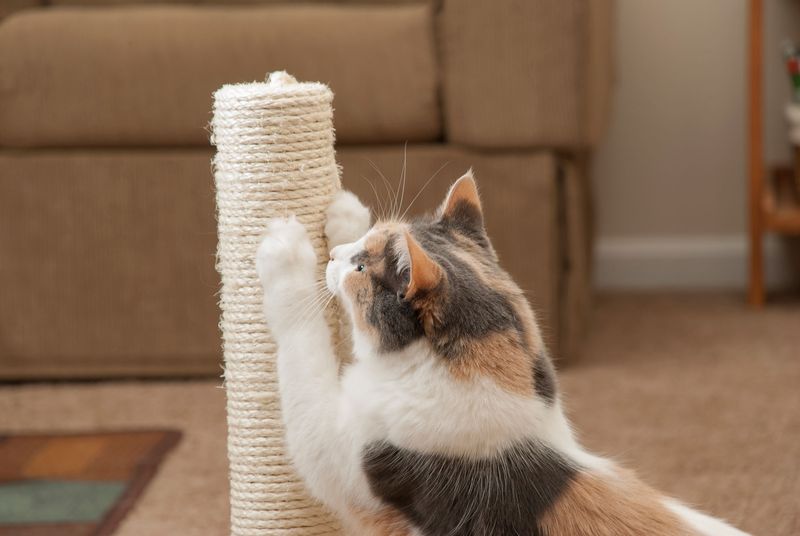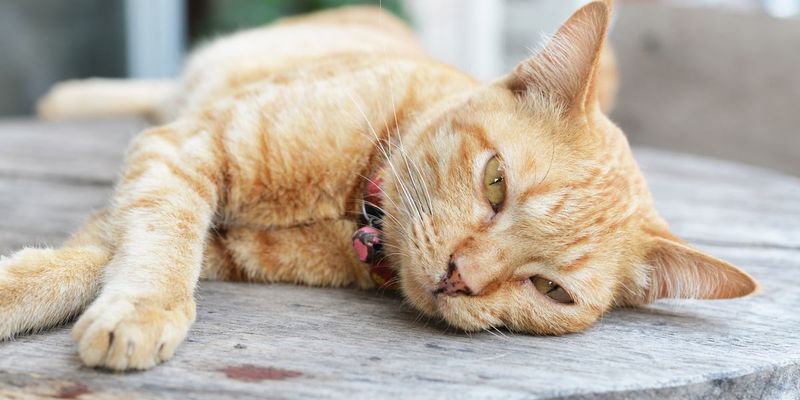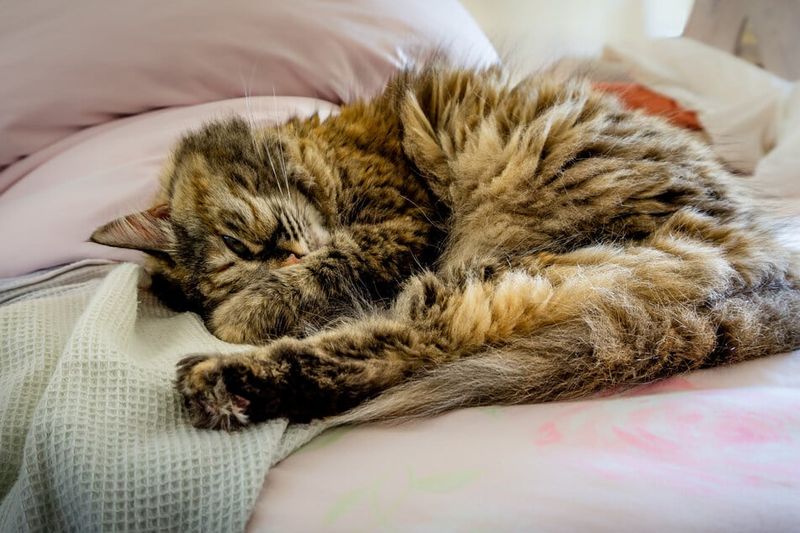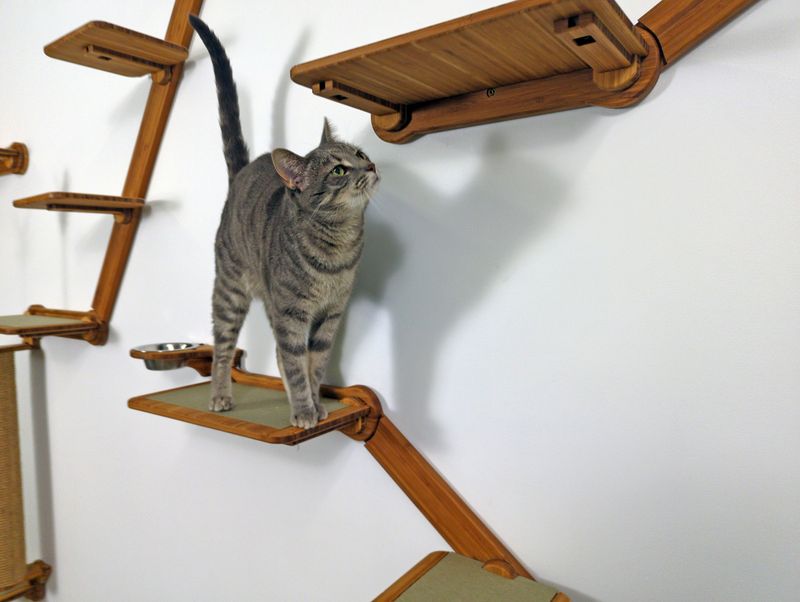📖 Table of Content:
- 1. Forcing Physical Affection
- 2. Inconsistent Daily Routines
- 3. Punishing Natural Behaviors
- 4. Using Loud Voices or Sudden Movements
- 5. Neglecting the Litter Box
- 6. Ignoring Signs of Illness
- 7. Overwhelming with Too Many Changes
- 8. Failing to Provide Adequate Play
- 9. Using Your Cat as a Stress Ball
- 10. Inconsistent Training Methods
- 11. Forcing Socialization
- 12. Neglecting Grooming Needs
- 13. Disrupting Sleep Patterns
- 14. Withholding Vertical Space
- 15. Using Scent Products They Hate
- 16. Ignoring Body Language Warnings
Cats are enigmatic companions that develop strong connections with their humans. However, these bonds can be delicate and easily affected by subtle actions. Unintentional behaviors may weaken the trust that forms the foundation of a healthy relationship.
Many cat owners are unaware that certain habits can create distance between themselves and their feline friends. Even well-meaning actions can cause stress or confusion for cats. Recognizing these hidden pitfalls is essential for nurturing a deeper, more trusting bond.
Building trust with a cat requires awareness and care. Identifying what might be undermining this connection opens the door to positive change. Strengthening the relationship leads to a happier, more confident feline companion.
1. Forcing Physical Affection
Your cat’s body language speaks volumes, yet many owners miss these crucial signals when seeking cuddles. Cats communicate discomfort through flattened ears, twitching tails, and attempts to escape. Ignoring these warnings and continuing to pet, hold, or kiss your cat teaches them that their boundaries don’t matter.
Respect becomes the foundation of trust between you and your feline companion. When cats feel their personal space is honored, they’re more likely to approach you voluntarily. This creates positive associations with human contact rather than stress-filled encounters.
Allow your cat to initiate contact whenever possible, and always watch for signs they’ve had enough attention.
2. Inconsistent Daily Routines
Cats thrive on predictability, finding comfort in knowing when meals, playtime, and sleep happen each day. Random feeding schedules create anxiety as your cat never knows when their next meal will arrive. This uncertainty triggers survival instincts that can make them defensive or withdrawn.
Establishing consistent routines helps your cat feel secure in their environment. They begin to trust that their needs will be met at expected times. Morning feeds, evening play sessions, and regular bedtime rituals become anchors in their daily experience.
Even small changes to established patterns can cause stress, so maintain schedules whenever possible for optimal trust-building.
3. Punishing Natural Behaviors
Scratching furniture, climbing curtains, and hunting behaviors aren’t acts of defiance—they’re hardwired instincts your cat cannot suppress. Yelling at or punishing these natural actions confuses your cat since they’re simply following biological programming. This creates fear and resentment rather than understanding.
Redirecting unwanted behaviors works better than punishment every single time. Provide appropriate outlets like scratching posts, cat trees, and interactive toys. Your cat learns that certain areas are acceptable for natural behaviors while others are off-limits.
Positive reinforcement builds trust while punishment erodes it, making your cat associate you with stress rather than safety and comfort.
4. Using Loud Voices or Sudden Movements
With their acute sense of hearing, cats easily get startled by unexpected sounds or swift actions. Yelling across the room, door slams, or quick hand motions can trigger anxiety. This can cause them to link your presence with fear rather than comfort.
Soft voices and slow, deliberate movements help cats feel secure around you. They learn to predict your actions and relax in your company. Speaking in gentle tones, even when excited or frustrated, maintains the peaceful atmosphere cats crave.
Creating a calm environment where your cat can anticipate your behavior builds confidence and strengthens your mutual bond significantly.
5. Neglecting the Litter Box
Nothing destroys feline trust faster than a filthy bathroom situation that forces your cat to choose between discomfort and necessity. Cats are naturally clean animals who expect their toilet area to meet high standards. Dirty litter boxes cause stress, health issues, and behavioral problems.
Daily scooping and regular complete litter changes show your cat you care about their comfort and wellbeing. Clean facilities encourage proper use and prevent accidents around the house. Your cat associates you with providing essential needs when their bathroom stays fresh.
Multiple cats require multiple boxes, and the general rule suggests one box per cat plus one extra for optimal hygiene.
6. Ignoring Signs of Illness
As a natural defense, cats conceal pain and sickness, making slight shifts in behavior the key indicators of health problems. Overlooking changes like eating less, hiding more, or neglecting grooming may lead to serious conditions going unnoticed. Your cat relies on careful observation to get the help they need.
Regular veterinary checkups catch issues before they become serious problems affecting your cat’s quality of life. Prompt attention to health concerns shows your cat you’re a reliable caregiver who responds to their needs. Delayed treatment can create a lasting fear of handling and medical procedures.
Trust grows when cats feel protected and cared for during vulnerable moments of illness or discomfort throughout their lives.
7. Overwhelming with Too Many Changes
Major life transitions like moving homes, introducing new pets, or rearranging furniture can overwhelm your cat’s ability to cope with change. Too many simultaneous adjustments create chronic stress that damages their sense of security. Cats need time to process and adapt to each new element.
Gradual introductions work better than sudden overhauls when making necessary changes to your cat’s environment. Allow adjustment periods between modifications so your cat can rebuild confidence. Familiar items like favorite blankets or toys provide comfort anchors during transitions.
Patience during adjustment periods demonstrates understanding and builds trust as your cat learns to navigate their evolving world successfully.
8. Failing to Provide Adequate Play
Boredom breeds behavioral problems as your cat’s hunting instincts demand a regular outlet through interactive play sessions. Cats without adequate mental and physical stimulation often develop destructive habits, aggression, or depression. They lose trust in owners who fail to meet these fundamental needs.
Daily play sessions using wand toys, laser pointers, and puzzle feeders satisfy your cat’s predatory nature safely. Engaged cats are happier, healthier, and more bonded to their human companions. Interactive play strengthens relationships while providing necessary exercise and mental challenges.
Tired cats are content cats who trust their owners to provide enriching experiences that fulfill their natural instincts appropriately.
9. Using Your Cat as a Stress Ball
Seeking comfort from your cat during difficult times is natural, but overwhelming them with your emotional needs crosses important boundaries. Cats sense human stress and anxiety, becoming overwhelmed when expected to provide constant emotional support. This reverses the caregiving relationship inappropriately.
Cats offer companionship best when they choose to provide comfort rather than being forced into therapeutic roles. Excessive handling during your stressful periods teaches cats to avoid you when you need them most. They associate your distress with uncomfortable interactions.
Healthy relationships allow cats to offer support naturally while respecting their autonomy and emotional capacity limits for optimal bonding.
10. Inconsistent Training Methods
Mixed messages from family members confuse cats who are trying to understand household rules and expectations. One person allows counter surfing while another scolds for the same behavior, creating uncertainty about what’s acceptable. Cats lose trust when they cannot predict the consequences.
Family meetings establish consistent approaches to cat training and boundaries throughout the household. Everyone should use identical commands, rewards, and consequences. Clear, unified expectations help cats feel secure in their understanding of house rules and family dynamics.
Consistency builds confidence as cats learn reliable patterns of cause and effect in their daily interactions with all family members.
11. Forcing Socialization
Some cats are naturally social butterflies, while others prefer smaller circles of trusted humans throughout their entire lives. Forcing shy cats to interact with strangers creates anxiety and can trigger aggressive defensive behaviors. Your cat’s personality should guide social expectations rather than your desires.
Respecting your cat’s comfort zone allows them to approach new people at their own pace when ready. Provide hiding spots during gatherings so cats can observe safely without pressure to participate. Some cats may never enjoy large groups, and that’s perfectly normal.
Trust develops when cats feel their social preferences are understood and accommodated rather than challenged or ignored by well-meaning owners.
12. Neglecting Grooming Needs
Long-haired breeds require daily brushing to prevent painful mats that pull at sensitive skin and restrict movement. Neglecting grooming needs leads to discomfort, skin problems, and expensive professional grooming sessions. Your cat associates you with allowing preventable suffering to continue.
Regular brushing sessions become bonding opportunities when introduced gradually with patience and treats. Start with short sessions and build tolerance over time. Cats learn to enjoy the attention and physical care when approached properly.
Maintaining your cat’s coat shows dedication to their comfort and health, building trust through consistent care and attention to their physical needs.
13. Disrupting Sleep Patterns
Cats sleep up to sixteen hours daily, and disrupting these rest periods affects their physical and mental health significantly. Waking sleeping cats for attention, photos, or playtime creates stress and exhaustion. Sleep deprivation leads to behavioral problems and health issues over time.
Respecting your cat’s sleep schedule shows understanding of their biological needs and natural rhythms. Cats are most active during dawn and dusk, requiring rest during other periods. Quiet environments during nap times help cats feel secure and well-rested.
Well-rested cats are more social, playful, and trusting toward owners who honor their need for adequate, uninterrupted sleep throughout the day.
14. Withholding Vertical Space
Elevated spaces allow cats to monitor their territory, providing a sense of safety and comfort. When homes lack cat trees or climbing areas, cats are stuck on the floor, which can heighten anxiety. Vertical territory is crucial for reducing stress and helping cats feel secure.
Providing various heights allows cats to choose comfort levels based on their mood and confidence. High perches offer security during stressful situations, while lower levels work for relaxed times. Multi-level environments satisfy natural climbing instincts while reducing anxiety.
Cats trust owners who understand and provide for their three-dimensional living needs through thoughtful environmental design and appropriate furniture placement throughout the home.
15. Using Scent Products They Hate
Strong artificial fragrances, citrus scents, and chemical cleaners can overwhelm your cat’s sensitive nose and create uncomfortable living conditions. Cats have scent preferences that differ dramatically from humans, and forcing them to tolerate offensive odors causes ongoing stress.
Natural, unscented products work better in homes with cats who have delicate respiratory systems. Essential oils and heavily perfumed items should be used sparingly or avoided entirely. Fresh air and gentle cleaning products create more comfortable environments.
Cats appreciate owners who consider their sensory needs when choosing household products, building trust through environmental consideration and sensitivity to their preferences.
16. Ignoring Body Language Warnings
Before biting or scratching, cats communicate their unease through subtle changes in posture and expression. Tail movements, ear direction, and eye dilation all offer insight into their mood. Ignoring these warning signs can provoke defensive reactions.
Learning feline body language helps prevent negative interactions and builds mutual understanding between species. Cats appreciate humans who respond appropriately to their communication attempts. Backing off when cats show stress signals prevents traumatic encounters.
Trust grows when cats realize their warnings are heard and respected, creating safer interactions and stronger bonds built on clear communication.
















